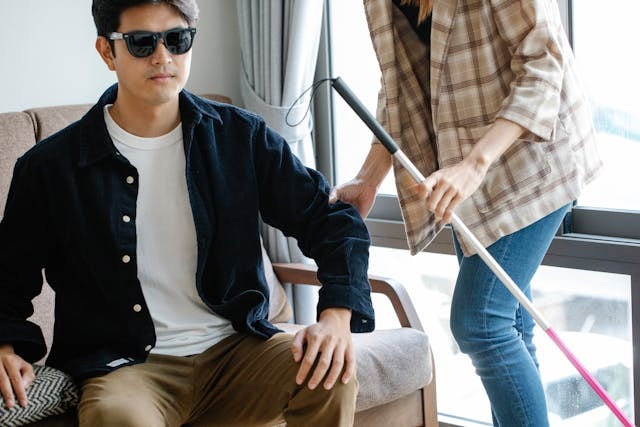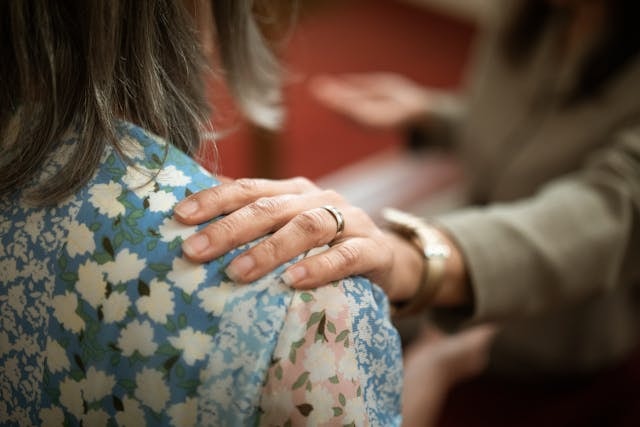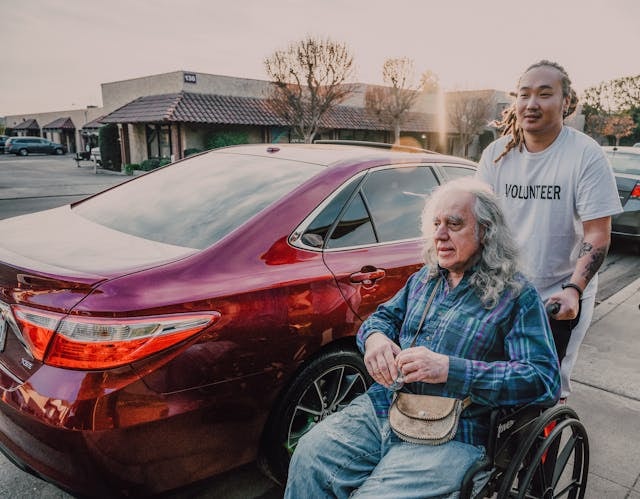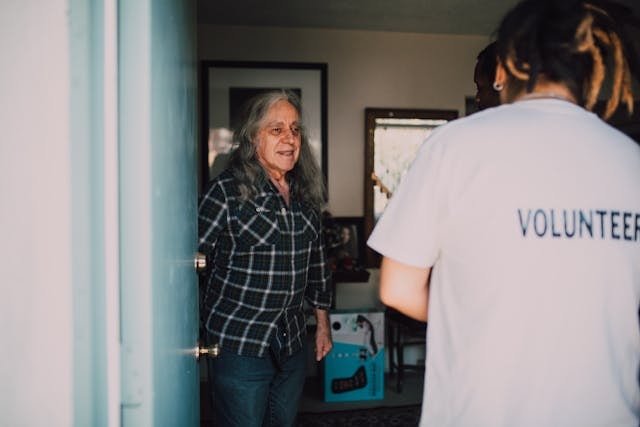
The National Disability Insurance Scheme (NDIS) has been a game-changer for people living with disabilities in Australia. Among the many services it funds, personal care assistance stands out as a key support to help individuals maintain their independence, dignity, and comfort. This service ensures that people can go about their day-to-day activities while receiving help tailored to their specific needs. In this article, we’ll explore the importance of personal care assistance under the NDIS and how it enhances lives across Australia.
Understanding Personal Care Assistance Under NDIS

Personal care assistance is one of the core services provided under the NDIS, offering individuals help with daily living activities such as dressing, grooming, showering, and mobility. For people with disabilities, these tasks can be challenging, but personal care services ensure that they can be completed with dignity and respect. By supporting these basic needs, the NDIS empowers individuals to live independently, whether they reside in their own home or a care facility.
What is Personal Care?
Personal care refers to the essential support provided to individuals who need assistance with daily living activities, such as bathing, dressing, grooming, and maintaining personal hygiene. Personal care assistants play a crucial role in helping individuals with disabilities, chronic illnesses, or age-related challenges to maintain their independence and dignity. These services can be delivered in the comfort of one’s own home, in a care facility, or within the local community, ensuring that each individual’s unique needs are met with respect and compassion.
Benefits of Personal Care Assistance
Personal care assistance offers numerous benefits to those who require support with daily living activities. By maintaining independence and dignity, individuals can experience an improved quality of life. Personal care assistants not only help with physical tasks but also provide emotional support and companionship, which are vital for overall well-being. They assist with rehabilitation exercises and mobility, enabling individuals to stay active and healthy. Moreover, personal care services allow individuals to remain in their own home for as long as possible, fostering a sense of comfort and familiarity.
Who Can Benefit from Personal Care?
Personal care assistance is beneficial for a diverse range of individuals, including seniors facing age-related challenges, people with chronic medical conditions, and those with physical disabilities. It is also invaluable for hospital patients recovering from surgeries or extended hospital stays, as well as individuals with cognitive impairments. Additionally, family caregivers can benefit from personal care services, as they provide temporary relief and respite, allowing them to focus on their own well-being while ensuring their loved ones receive the best possible care.
The Role of a Personal Care Assistant

Personal care assistants play a crucial role in the daily lives of individuals requiring support. They are responsible for assisting with personal hygiene, helping with mobility, and managing day-to-day tasks. These skilled professionals offer much more than just physical assistance—they provide emotional support, build trusting relationships, and help clients feel comfortable and secure in their daily routines.
To work as a personal support worker or care assistant in Australia, individuals typically need a Certificate III in Individual Support or Certificate IV in Aged Care or Disability. These qualifications ensure that personal care assistants are well-trained in providing safe, high-quality care to clients with various needs.
Daily Living Support: How Personal Care Assistants Make a Difference
Personal care assistants provide essential daily living support to individuals who need help with everyday activities. They assist with bathing, grooming, and dressing, ensuring that clients maintain high standards of personal hygiene. Personal care assistants also help with meal preparation and feeding, support mobility and rehabilitation exercises, and offer emotional support and companionship. By maintaining a safe and clean environment, they ensure that their clients can live comfortably and independently, enhancing their overall quality of life.
Daily Living Support: How Personal Care Assistant Make a Difference

Personal care assistants offer essential support in performing tasks that many people take for granted, such as getting dressed, moving around the house, and maintaining personal hygiene. For individuals with disabilities, these day-to-day tasks can become barriers to independence, but personal care assistants help break down those barriers.
From assisting patients with rehabilitation exercises to ensuring proper mobility, personal care assistants are integral in supporting individuals through their health challenges. Whether helping with grooming or providing support with medication, these professionals ensure that their clients’ needs are met in a way that promotes well-being and independence.
Personal Carer Assistance in the Comfort of One’s Home

One of the most significant benefits of NDIS personal care assistance is that it can be provided in the comfort of an individual’s own home. In-home personal care allows clients to maintain their routines and independence in a familiar environment. Personal care services are tailored to each individual’s needs, ensuring that support is provided in a way that respects their privacy and dignity.
Respite care is another valuable service that can be integrated into in-home personal care, offering temporary relief for primary caregivers.

For families, having a personal care assistant in the home can provide much-needed relief, especially when a loved one requires ongoing support. It allows family members to focus on spending quality time together, rather than solely acting as caregivers.
Personal Care Services for Older People and Aged Care

As we age, the need for personal care assistance often increases. elderly care services, particularly the personal care assistant role, are essential for helping older people maintain their well-being and independence. Many elderly individuals require help with activities such as showering, dressing, and maintaining personal hygiene, and this is where personal care assistants excel.
For older adults, receiving personal carer, that respects their dignity is crucial. Personal care assistants are trained to provide sensitive, compassionate care, helping older people feel secure and supported as they navigate daily living challenges.
Personal Care Assistance for People with Disabilities

“Personal care assistant employers and assistants who work with people with disabilities must tailor their services to meet a wide range of specific needs. This could include helping with mobility, supporting individuals with behavioural problems, or assisting with more complex medical conditions. Personal care assistants also play a vital role in helping with rehabilitation exercises, ensuring clients can maintain or regain their physical independence.
By offering personalized and support services, personal care assistants empower individuals with disabilities to live fulfilling, independent lives while ensuring that their day-to-day tasks are managed with care and professionalism.
The Importance of Personal Hygiene in Personal Care Worker Assistance

Personal hygiene is a critical component of overall health and well-being. For many people receiving personal care assistance, tasks like showering, grooming, and dressing can be challenging to manage on their own. Personal care assistants help ensure that clients maintain high standards of personal hygiene, promoting both physical health and mental well-being.
Maintaining personal hygiene can also help boost confidence and self-esteem. By supporting clients in this area, personal care assistants ensure that individuals feel clean, comfortable, and dignified throughout their daily activities.
Personal Care Assistance in Different Care Settings

Personal care services can be provided in various settings, from the client’s own home to care facilities or elderly care homes. Whether at a person’s home or in a care facility, the goal of personal care assistants is always the same: to ensure clients receive high-quality, respectful care that meets their needs.

When receiving care in a residential facility, clients often require more intensive support. Personal care assistants in these settings are trained to manage complex needs while ensuring the comfort and safety of residents. In contrast, in-home care allows for a more personalized, flexible approach to meeting individual requirements.
How to Find a Qualified Personal Care Assistant

Finding a qualified personal assistant is crucial to ensuring that individuals receive the best possible care. Look for candidates with the right certifications, such as a Certificate III in Individual Support or a Certificate IV in Disability or Aged Care. Additionally, for personal care assistant jobs it’s essential to find someone with the right skills and attributes, such as empathy, patience, strong communication skills, and first aid knowledge.
A great personal care assistant will not only provide physical support but will also have top skills to connect emotionally with their clients, building trust and fostering a positive environment for care.
How to Become a Personal Care Assistant
Becoming a personal care assistant typically requires obtaining a Certificate III in Individual Support, Aged Care, or a related field. The steps to becoming a personal care assistant include completing the necessary educational qualifications, gaining practical experience through volunteering or related work, and developing essential skills such as communication, empathy, and problem-solving. Additionally, obtaining certifications in first aid and CPR is crucial. Registering with relevant industry associations and organizations can also provide valuable resources and support for those pursuing a career in personal care assistance.
The Importance of Personal Care Assistants for Families

For families caring for loved ones with disabilities or age-related needs, personal care assistants can be a lifeline. By providing daily support and respite care, these professionals allow family members to take a break from caregiving duties and focus on their own well-being. This also gives them the peace of mind knowing their loved ones are receiving the best possible care.
Personal care assistants also work closely with families to understand the unique needs and preferences of each client, ensuring a tailored approach that benefits everyone involved.
The Impact of Personal Care Assistants on a Client’s Well-being

The presence of a personal care assistant can have a transformative effect on a client’s life. By helping individuals maintain their independence and dignity, these professionals significantly improve their clients’ overall well-being. Whether it’s through assisting with daily activities or offering companionship, personal care assistants make a tangible difference in the lives of those they support.
The positive impact of personal care services extends beyond just physical health. Emotional and mental well-being are also enhanced, as clients feel more empowered to live their lives with dignity and autonomy.
Professionalism in Personal Care Assistance

Providing high-quality care requires professionalism at all levels. Personal care assistants are part of a broader team that may include registered nurses, therapists, and other healthcare professionals, all working together to ensure the best outcomes for clients. This collaborative approach ensures that each client’s specific needs are met with the highest standards of care.
Challenges Personal Care Assistants Face and How to Overcome Them

Being a personal care assistant comes with its challenges, especially when working with clients who have complex medical needs or behavioural problems. However, with the right training, patience, and support, these challenges can be overcome. Ongoing professional development, such as completing a Certificate IV, allows personal care assistants to enhance their skills and provide even better care to assist their clients.
The Future of Personal Care Assistance in Australia

As the demand for personal care services grows, the future of personal care assistance in Australia looks promising. Innovations in healthcare technology, community services such as telehealth and mobility aids, are helping personal care assistants provide more effective and efficient services. Additionally, ongoing reforms within the NDIS ensure that individuals continue to receive the support they need to live independently.
How to Access Personal Care Assistance Through NDIS

To access personal care assistance through the NDIS, individuals must first determine their eligibility. Once approved, they can work with their NDIS planner to create and complete a plan that includes personal care services tailored to their specific needs. It’s important to choose an NDIS registered provider to ensure high-quality, compliant care.
Why Choose an NDIS Registered Support Provider

Choosing an NDIS registered provider ensures that clients receive services from professionals who meet the highest standards of care. Registered providers are held accountable to NDIS guidelines, ensuring that clients are treated with dignity and respect. Working with a registered provider also gives clients peace of mind, knowing that their support team is trained, experienced, and committed to delivering the best possible care.
Conclusion: Achieving Independence and Comfort with Personal Care Assistance

At its core, personal care assistance under the NDIS empowers individuals to live their lives with dignity, independence, and comfort. Whether supporting day-to-day tasks, managing personal hygiene, or providing emotional support, personal care assistants make a significant difference in the lives of those they serve. By choosing a qualified, professional NDIS registered provider, individuals and families can rest assured that they are receiving the highest quality personal care attendant, tailored to their unique needs.

FAQs

What qualifications are required for personal care assistants in Australia?
Personal care assistants generally need a Certificate III or Certificate IV in Individual Support, Aged Care, or Disability to work in Australia.
How can personal care assistants help with daily tasks?
Personal care assistants provide essential support with daily activities such as dressing, grooming, mobility, and hygiene, ensuring clients can maintain independence.
What is the role of personal care assistants in aged care?
In elderly care, personal care assistants support older adults with tasks such as showering, dressing, and medication management, ensuring their dignity and comfort.
How do I access personal care assistance through the NDIS?
Individuals must first apply for NDIS support and, once approved, work with a planner to include personal care services in their NDIS plan.
What are the benefits of choosing an NDIS registered provider for personal care assistance?
Registered providers meet NDIS standards, ensuring clients receive high-quality, compliant care tailored to their specific needs.
External Links

NDIS Personal Care Services
NDIS: Personal Care Services – Official NDIS page detailing personal care services available to participants.
Aged Care in Australia
Australian Government: Aged Care – Government portal providing information about aged care services and support for older Australians.
Certificate III in Individual Support For Personal Care Assistance
Australian Qualifications Framework: Certificate III in Individual Support – Information about the qualifications required for personal care assistants, including Certificate III.
Rehabilitation Exercises for People with Disabilities
Better Health Channel: Rehabilitation Exercises – Guide to rehabilitation exercises that personal care assistants can support for individuals with disabilities.
Mental Health and Disability Support
Head to Health: Mental Health Support – Resource for mental health support, including how personal care assistants can help with emotional well-being.
Respite Care for Families
Carer Gateway: Respite Care – Overview of respite care services, which offer support to families and caregivers.
Aged Care and Personal Hygiene
HealthDirect: Personal Hygiene in Aged Care – Information on maintaining personal hygiene for older adults in aged care settings.

